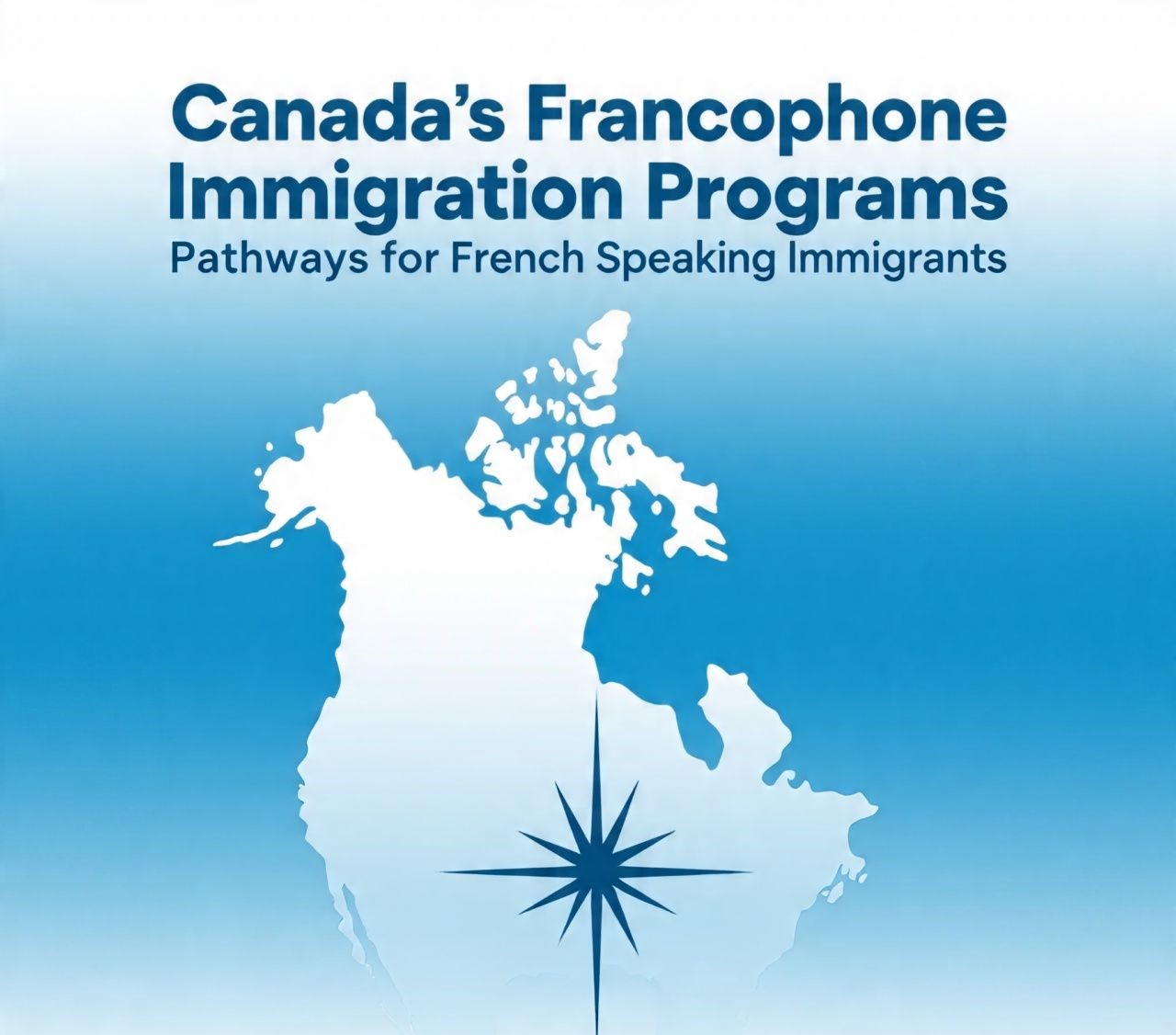Canada offers streamlined immigration opportunities for Frenchspeaking individuals through dedicated programs designed to strengthen francophone communities outside Quebec. These pathways provide advantages such as LMIAexempt work permits, lower language requirements, and bonus points in Express Entry. Below is a detailed overview of eligibility, benefits, and how to apply. 1. Overview of Francophone Immigration Programs The Francophone Immigration Program encourages Frenchspeaking immigrants to settle in designated communities across Canada (excluding Quebec). Key pathways include: These programs aim to address labor shortages while promoting linguistic diversity. 2. Eligible Francophone Communities Frenchspeaking communities exist nationwide, with 14 priority regions receiving additional government support for newcomers, including: While applicants can choose any francophone community, the 14 priority regions offer enhanced settlement services (e.g., job assistance, language training). 3. Francophone Mobility Work Permit Eligibility Criteria Application Process 1. Secure a job offer from an eligible employer. 2. Employer submits offer via IRCC’s Employer Portal (pays $230 compliance fee). 3. Apply for the work permit. 4. Upon approval, move to Canada and work for 12+ months. 5. Transition to permanent residency via Express Entry (Canadian Experience Class). Advantages 4. Express Entry for French Speakers Frenchspeaking candidates receive priority invitations through Express Entry’s categorybased selection. Key Benefits Requirements 5. 2024 Immigration Targets Canada aims to welcome 26,100 Frenchspeaking immigrants in 2024 through these programs—more than other economic streams like the Atlantic Immigration Program (AIP). 6. Destination Canada Mobility Forum A free virtual event (December 4–6, 2023) for francophone and bilingual candidates, featuring: Eligibility to attend: 7. Next Steps for Applicants 1. Assess Eligibility – Confirm language proficiency (CLB 5+ for work permit; CLB 7+ for Express Entry). 2. Job Search – Target employers in francophone communities (use Job Bank, Indeed, or the 14 priority regions). 3. Prepare Documents – Language tests (TEF), ECA, proof of funds. 4. Apply Early – Programs have limited annual quotas. 5. Consult an Immigration Expert – Ensure optimal application strategy. Conclusion Canada’s Francophone Immigration Programs offer accelerated pathways for French speakers through LMIAexempt work permits and Express Entry advantages. With lower language requirements and dedicated support in francophone communities, these programs present a strategic opportunity for eligible candidates. Interested in applying? Start by improving your French, exploring job opportunities, and registering for the Destination Canada Mobility Forum. Would you like assistance with job search strategies or TEF exam preparation? Let us know in the comments or send us a message privately! 🇨🇦 Let Worldbridge Immigration Services be your guide to a successful future in CanadaContact us: Website: www.theworldbridge.caEmail: info@theworldbridge.caPhone/WhatsApp: +1-416-727-7766Social Media: @worldbridgeHQ
Today’s Date - Wednesday, August 6, 2025



